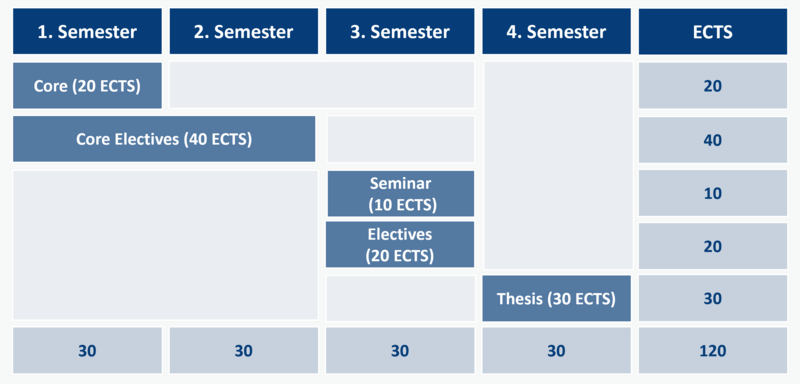International Economic Policy

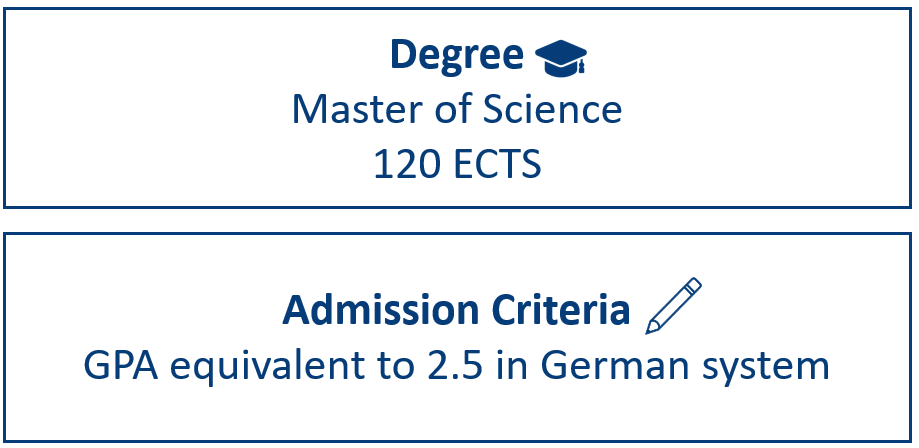
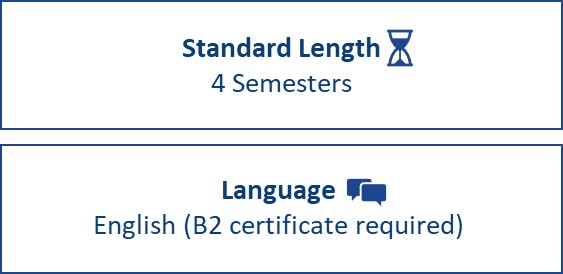
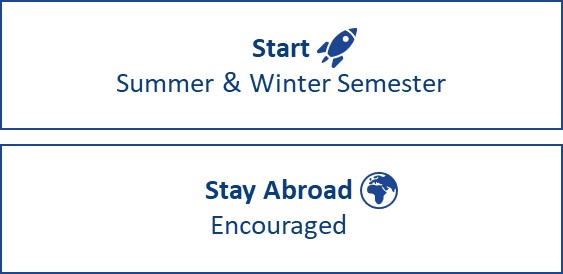
International Economic Policy (M.Sc.)
The Master’s programme in International Economic Policy offers a dynamic, globally focused education that equips students with cutting-edge theoretical and empirical economic analysis skills. Designed to address key challenges in business and public policy, this programme prepares graduates for impactful careers in both the private and public sectors or for further academic pursuits. Upon successful completion, students earn a fully accredited Master’s degree—an ideal foundation for shaping the economic policies of tomorrow.
Apply now!
Programme structure
First Year
The first two semesters of the Master's degree programme in International Economic Policy provide you with a solid foundation of knowledge and focus on the basic principles of the broad field of economics.
In the core area, you will complete modules totalling 20 ECTS. You will acquire skills and competences from the most important microeconomic and macroeconomic areas as well as econometrics, giving you a broad and solid foundation of knowledge.
As part of the core electives, you then have the opportunity to take a further 40 ECTS with modules from the fields of economics. The broad and comprehensive selection of modules allows you to set your own individual specialisation and deepen your own interests during your studies.
Second Year
A seminar paper must be completed as part of the Master's programme. This should be policy- or research-oriented and offers the opportunity to prepare for the subsequent Master's thesis. In principle, the seminar paper can be written from the second semester onwards, but is recommended for the third semester.
In the electives area, you can choose between courses in major economic policy areas (e.g., public finance, labour economics, monetary economics, international economics, competition policy), in theoretical fields (e.g., behavioural economics, game theory, contract theory), in research methods (e.g., microeconometrics, computational economics, experimental economics), or in economic journalism. This gives you the option of acquiring an even broader field of knowledge or an even more in-depth knowledge in your preferred areas of economics.
At the end of the programme, you will write your Master's thesis. The Master's thesis comprises a total of 30 ECTS credits and should, if possible, be written at an economics department. The completion time is six months.
How to apply
You need the following ECTS credits to apply for the Master's degree programme in International Economic Policy:
- 20 ECTS credits in methods (mathematics, statistics, econometrics and applied data-oriented methods, e.g. data science, business analytics, data analysis)
- 60 ECTS credits in the field of management and economics (of which at least 30 ECTS credits must be in economics)
The exact wording of the admission requirements can be found in the Subject-Specific Provisions Master International Economic Policy.
Language requirements:
- All applicants must prove their English language skills with a B2 certificate. Language requirements can be met by different tests and certificates:
- TOEFL-Test with at least 85 Points or more
- IELTS with at least a score of 6,5 or better
- FCE Cambridge Certificate with at least 176 Points or more (Grade B)
- Pearson PTE Academic Test with at least 75 Points
- Please note that international students must proof German language skills at basic level A2 by the end of the re-registration period for the third semester at the latest - not necessary for application
For more information please contact the International Office.
Further information on application and admission can be found on the Application website.
Double Degree Programme

The Faculty of Management and Economics offers for Master students in IEP two options for a double degree programme either with
- University of Ghent, Faculty for Economics and Business Administration
- University of Verona, Department of Economics
A double degree programme is an integrated international course of study that takes place partly at the University of Würzburg and partly at an international partner university, in this case at the University of Ghent or at University of Verona. This programmes gives students the opportunity to pursue two master's degrees from two universities in just two years.
More Information on the Double Degree Programme Website.
Further information
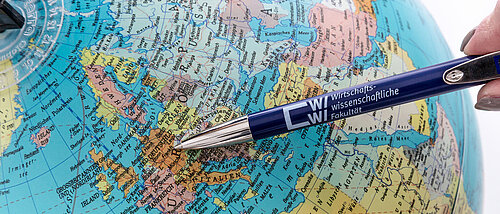
A semester abroad offers a great opportunity to gain international study experience, get to know other cultures and broaden your personal horizons.
During your studies, you have the opportunity to spend a semester abroad in the second half of the programme. You can choose from our numerous partner universities in other European and non-European countries.
You can find more information about the semester abroad on the International page.
An exchange is not mandatory in this programme.
Programme regulations: Valid from the winter semester 2026/27 in german language.
Subject Description: Valid from the winter semester 2024/25 in english language and valid from the winter semester 2024/25 in german language.
Module catalogue: Valid from the winter semester 2024/25 in english language and valid from the winter semester 2024/25 in german language.



